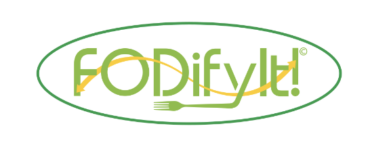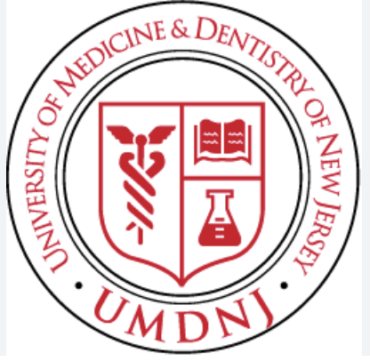At Rebalance Physical Therapy, we do our best to promote sustainability in our clinics and practices. Today, to celebrate Earth Day, we are sharing some information on composting from our friends at Mother Compost.
Gwenn Nolan is the founder and CEO of Mother Compost. Gwenn generously shared some information about herself, Mother Compost, composting, and some easy ways to incorporate sustainable practices into your everyday routine.
Hi Gwenn! Tell us a little about yourself and your background.
I grew up on the Main Line before heading to Penn State Main Campus, where I studied Public Relations & Marketing. From there I made my way to New York City, working in a variety of industries such as PR and Recruiting before settling into financial services. I met my husband and returned home shortly after our wedding to begin new careers in Philadelphia. A few years and babies later, we landed in Wynnewood.
Tell us about why you started Mother Compost.
I increasingly noticed that our family was throwing away tons of food and wanted to find a way to combat it. When I started composting on my own, I found it a bit challenging and just another chore that I had trouble maintaining. I looked for a service and my quick search came up empty. At that moment, I decided to start one. I found out later there was a service, Kitchen Harvest, who we now partner with to process our materials. But in many ways, I am glad my initial search yielded no results, as it left room for the idea to take root & grow.
I believe that composting is a very simple & effective way to reduce waste and create a more circular waste system. I also believe that lots of people would be willing to try if it could be easy for them. That’s our goal at Mother Compost – to make composting super easy through excellent service that includes cleaning containers, reminders and compost return each spring. We also offer educational programming for those who want to try composting on their own. Our mission is to help people compost, however, it works best for them.
Why is composting important?
There are two sides of composting that explain why composting is a vital change we should be making with our organic waste.
First, it redirects food waste from landfills. Food waste is currently the single largest category of waste filling our landfills today. In 2018 it was estimated to be approximately 22% of the 292.4 million tons we discarded in the US. Imagine if we could instead recycle those materials?
Most people do not realize that food or organic waste cannot biodegrade naturally in a landfill environment. Landfills seal layers of trash with plastic to eliminate pests & odor. But that sealing process also eliminates oxygen, which is necessary for organic materials to biodegrade via aerobic digestion. Instead, these materials undergo something called anaerobic digestion, which causes them to release methane gas, a greenhouse gas 20-30% more potent than CO2.
Secondly, when organic materials are separated from “regular trash” and composted, they turn into a nutrient-rich soil amendment that returns beneficial microorganisms back to our soils. The difference between soil & dirt is that good soil is alive with a variety of microorganisms and nutrients, whereas dirt is degraded soil with little to no nutrient value or bacteria. ⠀
It is important to keep a diverse range of microorganisms in our soils as they help plants fight off pests. Additionally, the more nutrients you have in your soil, the more nutrients our plants will have an opportunity to absorb. This benefits us as then our food supply will be full of nutrient-dense fruits and vegetables.
⠀
Can you explain more about the actual process of composting?
Composting is a way to replicate the process of waste treatment used in nature to ensure that nutrients are recycled back into the ground.
During the composting process, organic matter is broken down by microorganisms to transform materials into compost, a nutrient-rich soil amendment. It requires the presence of nitrogen-rich materials (most commonly kitchen scraps), carbon-rich materials (like leaves or shredded newspaper), oxygen, and water.
Through the respiration process, the microorganisms give off CO2 & heat. Temperatures in an active pile can achieve anywhere from 100 – 150 degrees Fahrenheit. The temperature of your pile will determine how quickly the materials break down—hot piles that are actively turned & managed can take weeks. In other piles that are not turned or watered as frequently, a complete breakdown can take months.

Tell us about what Mother Compost does
Mother Compost is an organic materials collection service located on the Main Line. We provide regular collections, clean containers after each pickup, reminders & skip credits, as well as the option to reserve 60 lbs of compost each spring for planting season. Our goal is to make composting easy for our subscribers.
We process commercially, so we are able to take materials that cannot go in a traditional backyard composting system, such as compostable liners & foods with oils/ fats, large seeds, etc.
Share a tip (or a few tips!) that everyone can do to live more sustainably.
Our advice is always to start small and with something that will have a positive impact on your day-to-day.
If you love water, try a reusable water bottle. Coffee – get a reusable cup! Put vegetables in water in your fridge to extend their shelf life. These little adjustments are fairly simple and can help you both save money and see a big difference in the amount you throw away.
Thanks again, Gwenn, for sharing your knowledge with us! Mother Compost offers a 30-day free trial so you can give it a try and see how it works for you.
















